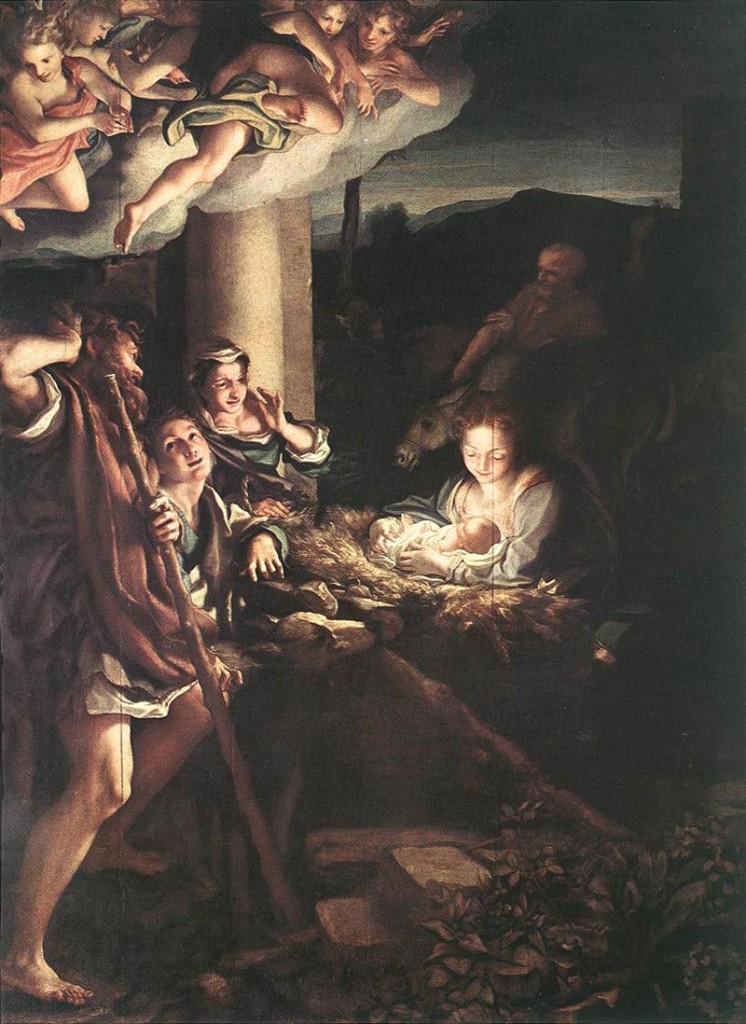Christophers, H&H deliver a fiery and dramatic “Messiah”
It’s been nearly 200 years since the Handel and Haydn Society introduced Messiah to Boston audiences. And since the mid-nineteenth century, H&H has performed Handel’s beloved oratorio, in full, on an annual basis. Harry Christophers, now at the forefront of that long tradition as artistic director of the society, has made it a point that each performance of Messiah be fresh and relevant.
Friday night at Symphony Hall, Christophers and H&H achieved that and much more.
From beginning to end, Christophers led a dramatic performance well suited to the subject matter espoused in Charles Jennens’ libretto. In the first part, which foretells the coming of Christ, the conductor drove the ensemble and soloists in tight, brisk tempos to portray, the excitability of the moment. This was one of the fastest and most athletic performances of the oratorio’s first section that I’ve heard, but precision and musical flow were never lost. The period-instrument orchestra and 30-member chorus responded well to Christophers’ animated conducting and performed with clarity and finesse.
Trumpeters Jesse Levine and Paul Perfetti sounded their parts from the balconies in Glory to God and, with timpanist John Grimes, offered pomp and power to the famous Hallelujah chorus.
Under Christophers’ hand, the bubbling fugal lines in For unto us a child is born and His yoke is easy came alive with dynamic swells and bursts, an interpretive approach that imbued the work with unique energy. In the more contemplative second and third parts, he eased the tempo, enabling the choruses Since by man came death and Worthy is the lamb to receive their full dramatic weight.
Joining H&H was a strong cast of soloists. Canadian soprano Karina Gauvin, with her clear, ringing voice, handled Rejoice greatly with flair and dramatic intensity. Tenor James Gilchrist performed the opening recitative Comfort Ye with unusual smoothness and subtlety. He turned a corner in Ev’ry valley, where he offered crisp, energetic phrasing in the technical passages, punctuating them to good effect. Gilchrist was equally dramatic, if not eccentric, in Thou shalt break them.
Countertenor Daniel Taylor seemed to be fighting an uphill battle. In For he is like a refiner’s fire his articulation suffered at Christophers’ fiery tempo, and Taylor struggled with pitch and lost power in the lower register. But after several movements Taylor warmed up and offered more solid and sweetly phrased accounts of He was despised and He shall feed his flock, the latter in duet with Gauvin.
Baritone Sumner Thompson has a clean, full voice without a chesty sound, though he is capable of producing a commanding tone. He was at his best in the oratorio’s later baritone arias Why do the nations and The trumpet shall sound. One passing bobble part, trumpeter Levine handled the difficult obbligato line with bold, fine playing.
The concluding Amen was the appropriate denouement for this strong performance, one that ensures that H&H’s Messiah tradition has many fine years to come.
Messiah will be repeated 3 p.m. Saturday and Sunday at Symphony Hall. handelandhaydnsociety.org
Posted in Performances
